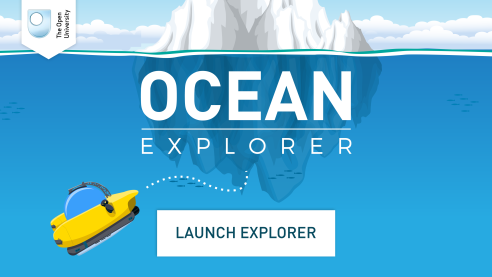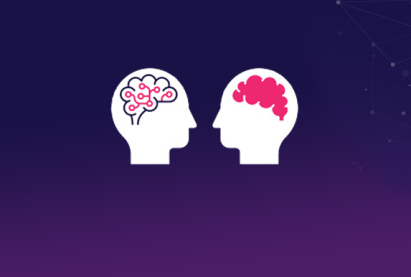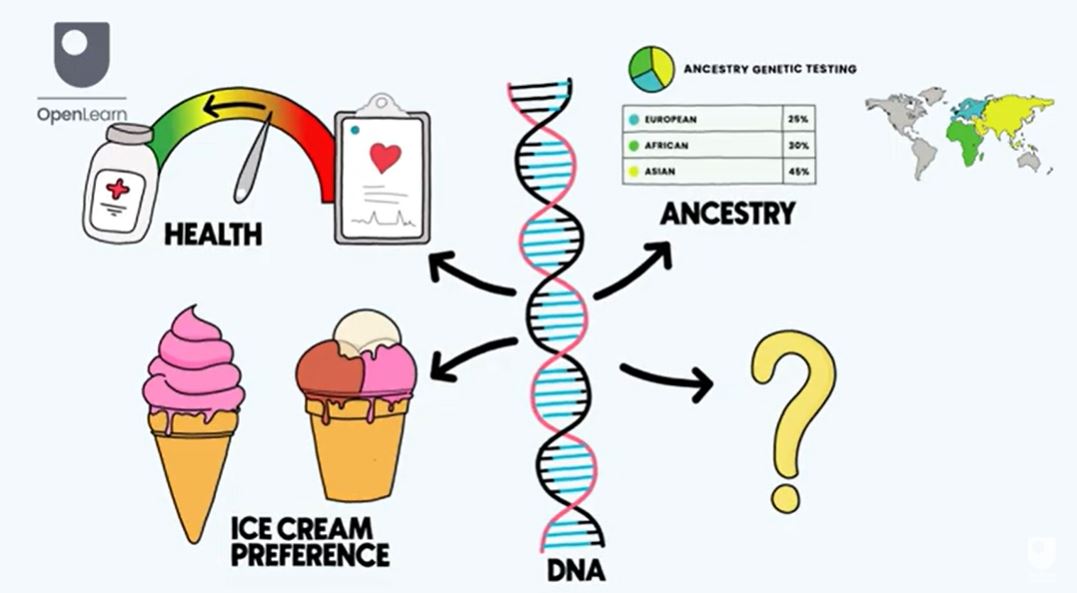British Science Week is a ten-day programme of science, technology, engineering and maths events and activities across the UK for people of all ages, coordinated by the British Science Association. To find out what is going on across the UK to celebrate, visit the British Science Week Event Calendar and keep up to date by following British Science Week on Twitter.
To celebrate we have compiled a range of FREE resources for you to explore and enjoy. See below to explore a topic further.
Biology - genomes
Genes are units of inheritance that contribute to a person’s behaviour and health. Genomes are composed of DNA, and a knowledge of the structure of DNA is essential to understand how it can function as hereditary material. DNA is remarkable, breathtakingly simple in its structure yet capable of directing all the living processes in a cell, the production of new cells and the development of a fertilized egg to an individual adult.
Learn the basic rules of genetics to try to fill your fish tank with as many high-value fish as possible in our game, check out our video on ancestry tests or try a FREE course on genes!
-
Direct-to-consumer (DTC) genetic testing
Watch now to access more details of Direct-to-consumer (DTC) genetic testingDid you know that more than one in 20 people in the UK have already taken a DTC genetic test? Companies selling these tests often make big promises about what they can do using our DNA, from predicting things about our health and ancestry, to whether someone is likely to prefer chocolate or vanilla ice cream. But what can these tests actually ...
-
Angel Breed
Take part now to access more details of Angel BreedUnderstand the basic rules of genetics and see if you can breed the rarest fish in our biology game.

-
What do genes do?
Learn more to access more details of What do genes do?This free course, What do genes do?, explores how information contained in DNA is used, explaining the flow of information from DNA to RNA to protein. Also introduced are the concepts of transcription (as occurs between DNA and RNA) and translation.

Chemistry - chemical elements
From diamonds to dynamite, everything involves a chemical reaction. You can discover more about chemistry in our free course or explore the darker side of chemistry in our article on poison and our interactives on forensic evidence.
-
Discovering chemistry
Learn more to access more details of Discovering chemistryChemistry lies at the centre of our modern life, playing a part in areas as diverse as the development of new drugs and materials, analysing our environment through to more mundane activities such as washing your clothes and making your tea. But to truly understand the role chemistry plays you need to have a sound grasp of a number of ...

-
Crime scene officer
Take part now to access more details of Crime scene officerPut yourself in a crime scene officer's shoes and try to solve a suspected murder when time and resources are tight. Can you link the suspects to the forensic evidence?

-
Hat makers, Greek gods and the great poisoners
Read now to access more details of Hat makers, Greek gods and the great poisonersEver wondered where the phrase 'as mad as a hatter' came from? We take a look at some infamous cases of poisoning.

Environmental science - the oceans
Explore the Earth's oceans and ocean life with our free course game and quiz.
-
Ocean explorer
Take part now to access more details of Ocean explorerTake a journey into the Earth's oceans and discover whether you've got what it takes to become an oceanographer. Explore ocean depths, currents, temperatures and find out more about the future of our oceans.

-
The oceans
Learn more to access more details of The oceansThe oceans cover more than 70 per cent of our planet. In this free course, The oceans, you will learn about the depths of the oceans and the properties of the water that fills them, what drives the ocean circulation and how the oceans influence our climate.

-
Plastics in our ocean
Take part now to access more details of Plastics in our oceanTest your knowledge about plastics in our oceans, and learn about how they impact the environment by clicking on the image below...

Geology - tectonic plates and rocks
Plate tectonics is an earth sciences topic that attracts a good deal of interest. Examine how the evidence for the movement of continents was gathered and how this movement relates to, and generates, geological features and phenomena such as ocean basins, mountain ranges, volcanoes and earthquakes. Alternatively, test your current knowledge with our quick-fire challenges on Slip Slide Collide! We also have a fantastic Geology Toolkit for you to enjoy.
-
Slip Slide Collide
Take part now to access more details of Slip Slide CollideWant to learn more about the Earth's tectonic plates? Start your journey into the surface of the Earth with these three quick-fire challenges in our science game.

-
Geology toolkit
Take part now to access more details of Geology toolkitDiscover the unique landscape of Great Britain and Ireland with our interactive Geology Toolkit, featuring a geology timeline, rock analyser, rock cycle, landscape features and safety tips.

-
Earthquakes
Learn more to access more details of EarthquakesEarthquakes shake the ground surface, can cause buildings to collapse, disrupt transport and services, and can cause fires. They can trigger landslides and tsunami in short, earthquakes can be very destructive. In this free course, Earthquakes, you will look at why, where and what happens when they occur and also at how earthquakes are assessed...

Physics and astronomy - out of this world
Why not go on a 60 second adventure in Astronomy? Or several? Below you can learn about the noise created by The Big Bang, and you can download the entire podcast in iTunesU for FREE.
Transcript
86.9 KB
Thinking about studying physics or astronomy? Or just want to be blown away by what is out of this world? Why not go where many have gone before and venture into some of our FREE courses on the subject?:
Spend 15 minutes on Mars in our interactive or make an impact with our Meteorite interactive game! You can also find out more about asteroids and meteorites in our collection.
-
Astronomy: images of the Universe
Learn more to access more details of Astronomy: images of the UniverseModern astronomy utilises a range of techniques across the electromagnetic spectrum that allow astronomers to measure the brightness, size and shape of astronomical objects, as well as their structure in many cases. This free course enables you to explore multiwavelength images of the Universe and make your own measurements of stars, nebulae and...

-
Astronomy with an online telescope
Learn more to access more details of Astronomy with an online telescopeThis free course shows you how to navigate the night sky, and introduces the wide variety of objects it contains. You will develop a hands-on understanding of telescopic observations using the Open University’s own robotic telescope facility COAST sited on the island of Tenerife. Supported by your own measurements we illustrate how stars...

-
Meteoric
Take part now to access more details of MeteoricRocks hurtling through space shape the surface of the moons and planets as collide – and now you can use your skill and knowledge to make your own mark. Can you cover a target percentage of a planet or a moon’s surface with impact craters – by choosing meteroids based on size, make-up and speed and aiming them at your chosen target.

-
The Magic of Meteorites
Read now to access more details of The Magic of MeteoritesIn March 2021, several rare meteorite fragments were found in Winchcombe, Gloucestershire. We celebrate this amazing discovery with a mini documentary and other FREE resources on meteorites…

-
The formation of exoplanets
Learn more to access more details of The formation of exoplanetsOver the last few decades astronomers have discovered thousands of planets orbiting stars other than the Sun – known as exoplanets. Many of these exoplanets are quite unlike anything we see in our Solar System. These include ‘hot Jupiters’ orbiting very close to their parent star and rocky ‘super Earths’ many times larger than our home planet. ...

-
White dwarfs and neutron stars
Learn more to access more details of White dwarfs and neutron starsStars live their lives for millions or billions of years but will eventually die. Low mass stars (like the Sun) will end their lives producing so-called planetary nebulae, and leave behind a collapsed core known as a white dwarf. More massive stars will end their lives by exploding and producing a so-called supernova remnant, and leave a neutron...

-
Unsolved problems in cosmology
Learn more to access more details of Unsolved problems in cosmologyThe science of cosmology has been very successful in explaining a wide range of observational evidence about the Universe, from the detailed properties of the cosmic microwave background radiation to the distributions of galaxies, and the elemental abundances in astrophysical environments. However, there are several major unknowns in ...

Artificial intelligence
Recent developments in artificial intelligence (AI) make this area increasingly pertinent to our working world. The links below explore some debates and questions surrounding the topic.
-
An expert’s take on AI
Read now to access more details of An expert’s take on AIGot any burning questions about Artificial Intelligence (AI)? Mike Richards, Senior Lecturer in Computing at The Open University, explains all in this article for National Coding Week.

-
60 Second Adventures in Artificial Intelligence
Watch now to access more details of 60 Second Adventures in Artificial IntelligenceHow does Artificial Intelligence (AI) work? How is AI used in science? All is explained these short animations narrated by David Mitchell.

-
Artificial intelligence - chatting with bots
Take part now to access more details of Artificial intelligence - chatting with botsAs technology advances, machines are becoming more advanced at interacting with humans, but what does this mean for the future?

-
A very brief history of AI
Read now to access more details of A very brief history of AIWhen was artificial intelligence (AI) first developed? This article looks at the first wave of AI - in particular ELIZA, one of the very first chatbots.

-
Academic versus AI
Read now to access more details of Academic versus AIWe wondered how easy it was to tell the difference between the work of a real-life human, and a machine… so you tell us!

-
Creativity and artificial intelligence
Watch now to access more details of Creativity and artificial intelligenceIs artificial intelligence capable of being creative? This animation and associated article looks at the meaning of 'creativity' and whether machines can carry out creative tasks.

Health Sciences - anxiety and pain
Focusing on anxiety, you will consider key issues concerning diagnosis, causes and interventions in our FREE course 'Understanding anxiety'. Plus, pain - we all understand what pain is, don't we? Or do we? Try one of our FREE courses to learn more!
-
Exploring anxiety
Learn more to access more details of Exploring anxietyThis free advanced level course, Exploring anxiety, serves as an introduction to masters level study in neurosciences and mental health. Focusing on anxiety, you will consider key issues concerning diagnosis, causes and interventions. You will also learn how to evaluate news items, and to go behind the headlines and begin to explore some of the ...

-
Pain and Aspirin
Learn more to access more details of Pain and AspirinWhat causes pain and how do we stop it? This free course, Pain and Aspirin, looks at how the human body responds to the release of certain chemicals and as a result feels pain. Pain can be reduced by inhibiting the formation of such chemicals and you will learn how the molecular structure of aspirin has been formulated to help in this process.

-
Drug development process: combating pain
Learn more to access more details of Drug development process: combating painDrug development process: combating pain, is a free course offering a brief introduction to the process of new drug discovery; from identification of a suitable candidate drug molecule to the development of a commercial drug product available in the clinic for pain relief or as an anti-inflammatory.



Rate and Review
Rate this article
Review this article
Log into OpenLearn to leave reviews and join in the conversation.
Article reviews